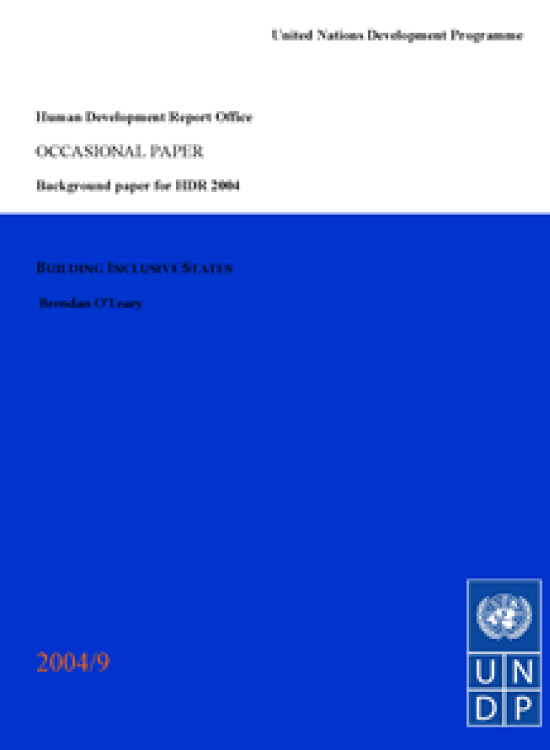Building Inclusive States

Download Report by Language
Document
hdr2004brendanoleary.pdf
(545.83 KB)
Citation
O'Leary, Brendan. 2004. Building Inclusive States. New York.
Building Inclusive States
Posted on: January 01, 2004
States matter more than societies in building inclusion. That is because they define societies, and their possibilities1. Impersonalized institutions that have some degree of centralized and procedurally governed political decision-making characterize functioning states. They have coercive capacities: they can regulate all instruments of potential public violence, and prevent or inhibit their own agents from being predators. They express authentic legal sovereignty over persons, property, and their movements, and are recognized as such entities by their citizens, civil society organizations, and by other states. Through self-help or alliances they can defend themselves against other states. Lastly, functioning states are defined by their recognized sovereignty over territory, and its accompanying prerogatives: control over entry and exit of persons and entities. If states lack these capabilities they cannot protect elementary human rights, promote human development, or be inclusive in any meaningful sense.